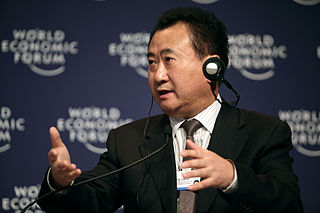A Quote by Masayoshi Son
Traditional companies have to start looking into themselves to offer more opportunities in their companies by starting new subsidiaries and joint ventures.
Related Quotes
India is a very, very old country with a history, culture and tradition like Italy. And we can use the English language to be in touch. Then India's industrial situation is similar to us. Both have big companies but are dominated by small and medium-sized companies. It is extremely important for both to do joint ventures.
In those countries where income taxes are lower than in the United States, the ability to defer the payment of U.S. tax by retaining income in the subsidiary companies provides a tax advantage for companies operating through overseas subsidiaries that is not available to companies operating solely in the United States. Many American investors properly made use of this deferral in the conduct of their foreign investment.
The idea of confidence, of the emotions of the population, is an incredibly important one in economics. John Maynard Keynes called it 'animal spirit.' And if people are feeling generally good about the future, they're more likely to spend money, to start new companies; companies are more likely to hire people, make investments.
When the trust is high, you get the trust dividend. Investors invest in brands people trust. Consumers buy more from companies they trust, they spend more with companies they trust, they recommend companies they trust, and they give companies they trust the benefit of the doubt when things go wrong.


































